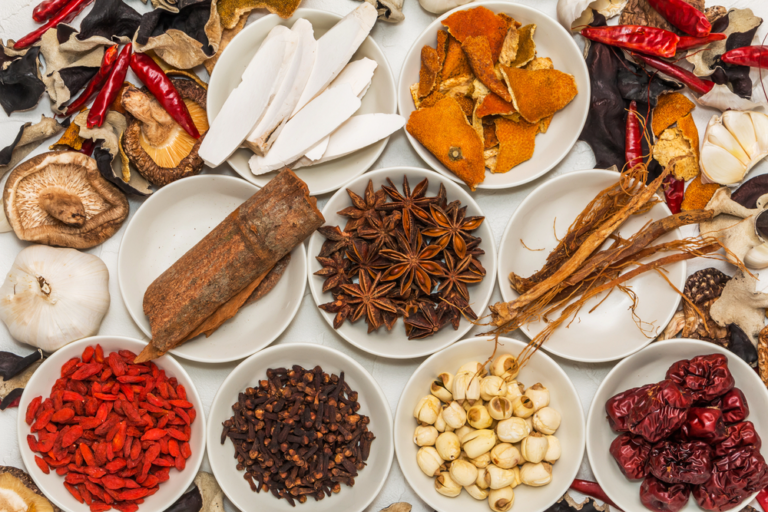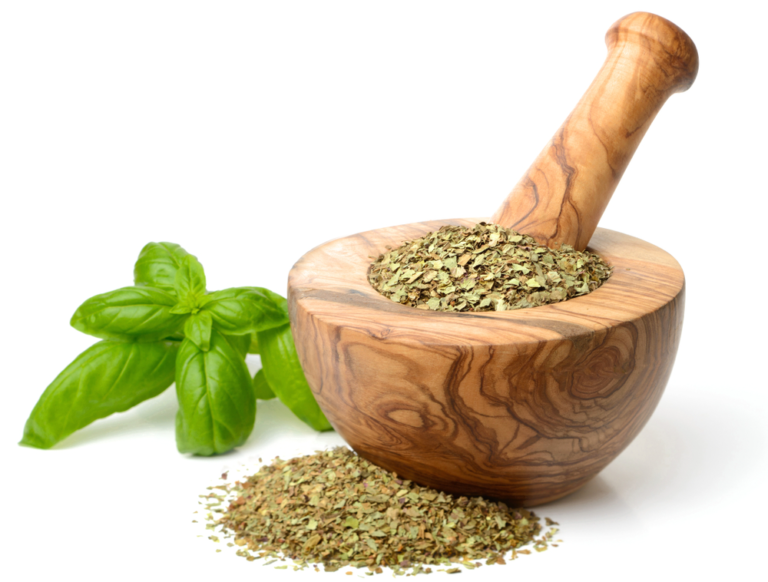Herbal Medicine Made Easy
With a wide variety of herbs available, it can be overwhelming to know which ones to use and for what purposes.
That’s where this guide comes in.
In this article, you will discover the different types of herbs and their uses for health, making herbal medicine easy and accessible for you.
From centuries-old traditional remedies to modern scientific studies, this guide will provide you with a comprehensive understanding of how herbs can be used to promote health and well-being.
You will learn about the specific benefits of popular herbs and how to incorporate them into your daily routine.
Say goodbye to chemical-filled pharmaceuticals and hello to the healing power of nature.
Get ready to embark on a journey of knowledge and discover the wonders of herbal medicine for a healthier and more natural approach to wellness.
Table of Contents Herbal Medicine Made Easy
Learn about herbal medicine basics
Understanding the basics of herbal medicine is an important step towards improving your health and well-being.
By familiarizing yourself with different types of herbs and their uses, you can harness the power of nature to support your body’s natural healing processes.
Herbal medicine has been practiced for centuries and continues to be a popular alternative to conventional medicine.
It offers a holistic approach to health, focusing on the body as a whole rather than just treating symptoms.
With the help of this comprehensive guide, Herbal Medicine Made Easy with this Guide to Different Types of Herbs and Their Uses for Health, you will gain valuable knowledge about the various herbs available, their therapeutic properties, and how to use them safely and effectively.
Whether you are looking to alleviate common ailments, boost your immune system, or simply enhance your overall well-being, this guide will serve as a valuable resource to navigate the world of herbal medicine.
Discover the benefits of herbs
Exploring the numerous benefits of herbs is a fascinating journey that can greatly enhance your health and vitality.
Through the utilization of Herbal Medicine Made Easy with this Guide to Different Types of Herbs and Their Uses for Health, you will gain valuable insights into the diverse range of herbs available and their potential applications for promoting well-being.
Herbs possess unique properties that can support various aspects of your health, such as reducing inflammation, boosting immunity, improving digestion, and promoting relaxation.
Incorporating herbs into your daily routine can provide a natural and holistic approach to maintaining optimal health.
With this guide, you will be empowered to harness the healing potential of herbs and discover a world of wellness possibilities that can positively impact your life.
Understand different types of herbs
When delving into the realm of herbal medicine, it is essential to have a comprehensive understanding of the different types of herbs and their specific uses for health.
By familiarizing yourself with the characteristics and properties of various herbs, you can confidently select the most suitable ones to address your specific health concerns.
There are several categories of herbs, including culinary herbs, medicinal herbs, and aromatic herbs, each offering their unique benefits.
Culinary herbs, such as basil, rosemary, and thyme, not only enhance the flavor of dishes but also possess medicinal properties.
Medicinal herbs, like echinacea and chamomile, are renowned for their healing properties and are often used in teas, tinctures, or capsules.
Aromatic herbs, such as lavender and peppermint, have soothing and calming effects, making them ideal for aromatherapy or creating homemade body care products.
By understanding the different types of herbs and their uses, you can embark on a journey of self-care and well-being, harnessing the power of nature to enhance your health.
Use herbs to improve health
To harness the power of herbs for improving your health, it is crucial to incorporate them into your daily routine.
Herbal remedies can provide natural alternatives to conventional medicine, promoting overall well-being and addressing specific health concerns.
For example, if you struggle with digestion issues, incorporating digestive herbs like ginger or fennel into your meals or brewing them into a soothing tea can help alleviate symptoms.
For immune support, consider incorporating immune-boosting herbs like elderberry or astragalus into your diet or taking them in supplement form.
Additionally, herbs such as chamomile or valerian root can be used to promote relaxation and better sleep.
Whether you choose to grow your own herbs or source them from reputable suppliers, the key is to educate yourself on the specific benefits and recommended uses of each herb.
By incorporating herbs into your daily routine, you can tap into their natural healing properties and enhance your overall health and well-being.
Explore herbal remedies for ailments
When it comes to addressing various ailments, exploring the world of herbal remedies can be a valuable approach to improving your health.
Herbal medicine offers a wide range of options for treating common ailments, from headaches and digestive issues to skin problems and respiratory conditions.
By incorporating specific herbs into your daily routine, you can target these ailments with natural alternatives.
For instance, if you frequently experience headaches, herbs like lavender or peppermint can provide soothing relief when used in aromatherapy or applied topically.
For skin issues such as acne or eczema, herbs like tea tree oil or chamomile can offer effective solutions.
By exploring the diverse range of herbs and their specific uses for different health concerns, you can empower yourself to take charge of your well-being and experience the benefits of herbal medicine.
Find natural solutions for wellness
Achieving optimal wellness can be a lifelong journey, and finding natural solutions to support your overall health is essential.
In the guide “Herbal Medicine Made Easy with this Guide to Different Types of Herbs and Their Uses for Health,” you will discover a wealth of knowledge about various herbs and their specific benefits.
Whether you are looking to boost your immune system, improve digestion, or enhance mental clarity, this comprehensive resource will provide you with the information you need to navigate the world of herbal medicine.
By incorporating these natural remedies into your daily routine, you can promote a balanced and harmonious state of well-being, allowing your body to thrive and flourish.
Embracing natural solutions for wellness is a proactive step towards living a vibrant and fulfilling life.
Enhance immune system with herbs
To support your immune system, herbs can be a powerful addition to your daily routine.
Certain herbs have been traditionally used for their immune-boosting properties, helping to strengthen the body’s natural defense mechanisms.
Echinacea, for example, has long been recognized for its ability to stimulate immune function and protect against respiratory infections.
Another herb, elderberry, is rich in antioxidants and has been shown to reduce the duration and severity of cold and flu symptoms.
Andrographis, known for its antimicrobial properties, may also help to enhance immune response.
Incorporating these herbs into your wellness regimen, as outlined in “Herbal Medicine Made Easy with this Guide to Different Types of Herbs and Their Uses for Health,” can provide natural support for your immune system, helping to ward off illness and promote overall well-being.
Remember, it is important to consult with a healthcare professional before starting any herbal regimen to ensure it aligns with your specific health needs and considerations.
Incorporate herbs into daily routine
When it comes to incorporating herbs into your daily routine, there are several simple and effective ways to do so.
One option is to start your day with a herbal tea that suits your needs.
For example, chamomile tea can help promote relaxation and reduce stress, while peppermint tea can aid digestion.
You can also incorporate herbs into your cooking by adding fresh or dried herbs to your meals.
Basil, rosemary, and thyme are just a few examples of herbs that can add flavor and health benefits to your dishes.
Additionally, creating homemade herbal infusions or tinctures allows you to customize your herbal remedies based on your specific health goals.
Whether you choose to enjoy a cup of herbal tea, sprinkle herbs into your meals, or experiment with homemade remedies, incorporating herbs into your daily routine can provide natural support for your health and well-being, as detailed in “Herbal Medicine Made Easy with this Guide to Different Types of Herbs and Their Uses for Health.
” Remember to consult with a healthcare professional before making any significant changes to your wellness regimen.
Now that you have a better understanding of different types of herbs and their uses for health, you are well-equipped to incorporate them into your daily routine.
From soothing chamomile tea for relaxation to the anti-inflammatory properties of turmeric, there are numerous herbal remedies that can support your overall wellness.
It’s important to always consult with a healthcare professional before starting any new herbal regimen, but with this guide as your reference, you can confidently explore the world of herbal medicine and discover what works best for you.
Remember, nature has provided us with powerful healing tools, and it’s up to us to utilize them for our own health and well-being.
FAQ
What are some common types of herbs used in herbal medicine, and what health benefits do they offer?
In herbal medicine, you can find a variety of common herbs that offer numerous health benefits.
Take a look at some examples: Turmeric is known for its anti-inflammatory properties, aiding in pain relief.
Echinacea enhances the immune system, helping to fight colds and infections.
Peppermint soothes digestive issues like bloating and nausea.
Ginseng boosts energy levels and reduces stress.
Chamomile promotes relaxation and sleep.
Lavender alleviates anxiety and promotes calmness.
These herbs, among others, offer a natural approach to improving overall health.
Remember to consult a healthcare professional before using any herbs for medicinal purposes.
How can herbal medicine be incorporated into a daily health routine for optimal results?
To incorporate herbal medicine into your daily health routine for optimal results, start by researching different herbs and their benefits.
Consult with a healthcare professional or herbalist to determine which herbs are suitable for your specific needs.
Incorporate herbs into your diet by adding them to your meals, teas, or smoothies.
Additionally, you can use herbal supplements or tinctures as directed by professionals.
Consistency is key, so make taking herbal remedies a daily habit.
Remember to monitor your body’s response and adjust dosage accordingly.
Maintaining a balanced lifestyle that includes regular exercise and a healthy diet will also enhance the effectiveness of herbal medicine.
Are there any potential risks or side effects associated with using herbal medicine, and how can they be minimized?
When using herbal medicine, it’s important to be aware of potential risks and side effects.
While herbal remedies are generally considered safe, there can still be risks involved.
To minimize these risks, it’s crucial to consult with a qualified herbalist or healthcare professional who can provide guidance and monitor your progress.
They can help determine the appropriate dosage and ensure there are no potential interactions with any medications you may be taking.
Additionally, it’s important to purchase herbal products from reputable sources to ensure quality and avoid any potential contaminants.
Remember to always follow the recommended dosage and stop using any herbal remedies if you experience any adverse reactions.
Can herbal medicine be used alongside conventional medical treatments, or is it recommended to choose one over the other?
When it comes to herbal medicine and conventional medical treatments, it is generally recommended to use them together.
Integrating herbal remedies with conventional treatments can provide a holistic approach to healthcare.
This allows you to benefit from the strengths of both approaches, utilizing the effectiveness of modern medicine while also harnessing the healing properties of herbs.
However, it’s crucial to consult with healthcare professionals who are knowledgeable in both realms to ensure safe and effective integration.
By combining the two, you can potentially enhance your overall well-being and achieve optimal health outcomes.
Are there any specific guidelines or precautions to follow when preparing or administering herbal remedies at home?
When preparing or administering herbal remedies at home, it is important to follow certain guidelines and precautions.
Firstly, always research and choose reputable sources for information on herbal remedies.
Secondly, carefully read and follow dosage instructions and any warnings or contraindications associated with the specific herb.
Additionally, be cautious with any potential allergies or interactions with medications.
It is advisable to consult with a qualified herbalist or healthcare professional before starting any herbal treatment.
Lastly, properly store herbs in a cool, dry place away from sunlight to maintain their potency.







